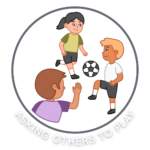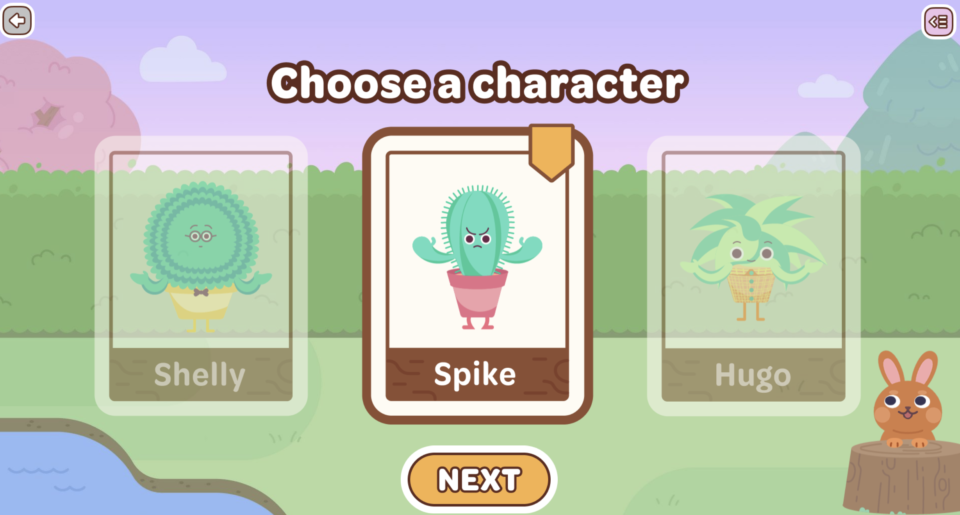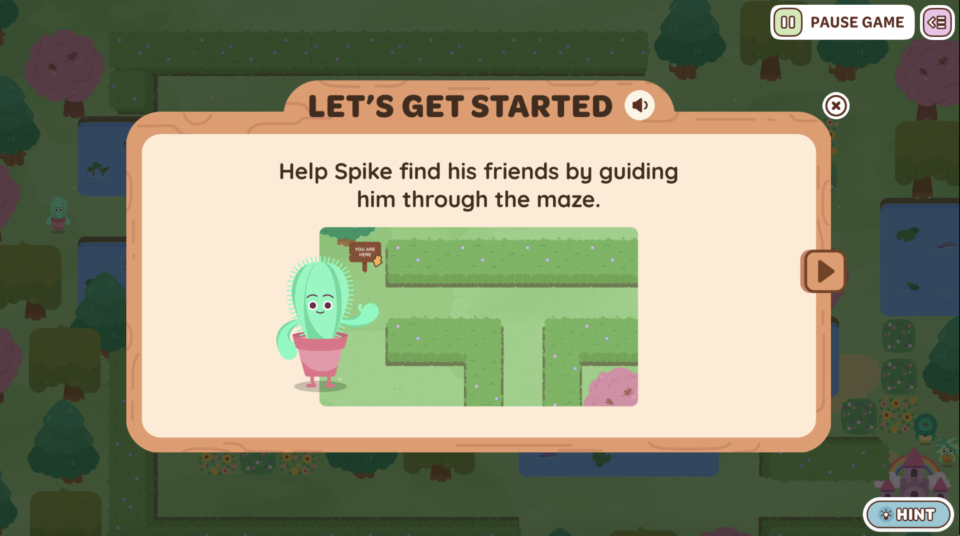
Teaching preschoolers how to engage with others and initiate play is a crucial part of early childhood development. Everyday Speech’s Play Skills Digital Game for Preschool Classrooms is an exciting, interactive way to teach young students the essential social skills of asking others to play. With our lovable plant characters leading the way, children are immersed in a fun learning environment that promotes inclusion, communication, and confidence. This digital game makes teaching social communication easier and more enjoyable for both educators and students.
Why Play Skills Matter for Preschoolers
Play is a cornerstone of preschool development. It’s not just about having fun—it’s how young children learn to navigate social situations, collaborate, and communicate. For many preschoolers, asking a friend to play can feel daunting, but with structured guidance, this process becomes much more manageable. The Play Skills Digital Game for Preschool Classrooms introduces students to the steps involved in initiating play. It breaks the process down into simple, easy-to-follow actions that kids can grasp, practice, and apply in real life.
By focusing on play skills early, educators can help prevent misunderstandings and conflicts in the classroom. When preschoolers know how to approach their peers respectfully and confidently, they feel more secure and included, fostering a positive learning environment.
Introducing Social Skills with Digital Games
Children love games, and digital tools like our Play Skills Digital Game for Preschool Classrooms offer an engaging way to teach critical social skills. Through interactive gameplay, children learn by doing. The game guides students through various scenarios where they practice asking their plant friends to play. The digital format keeps young learners engaged, while the playful characters make the experience enjoyable and relatable.
Each scenario is designed to reflect common social interactions preschoolers encounter, making the skills they learn in the game directly applicable to real-life situations. This type of active learning promotes retention and encourages students to practice their new skills outside of the game.

How the Play Skills Digital Game Works
In the Play Skills Digital Game for Preschool Classrooms, students are introduced to different characters, like Shelly and Spike, who navigate a Social Garden Maze to find their friends. Along the way, they encounter obstacles and questions about play. The game uses clear, age-appropriate language and visuals, making it accessible to all preschool learners.
The repetitive nature of the game helps reinforce the process. Children play through various scenarios where they make choices about how to ask someone to play.
Why Educators Love This Digital Game
Educators love the Play Skills Digital Game for Preschool Classrooms because it’s simple to use and highly effective. It provides structure for teaching social skills without requiring extensive prep work. You can introduce the game during a social skills lesson, play it as a class, or let students explore it individually during center time.
Teachers appreciate that the game aligns with social-emotional learning goals, supporting both academic and personal growth. The engaging format keeps students’ attention while delivering valuable lessons in communication and empathy. Best of all, the game’s format allows for repetition, helping students master play skills through practice.

Unlock all of our preschool materials by signing up for your free trial today – no credit card required!
Access the full Social Communication Curriculum HERE!
Instant access to thousands of no-prep social skills activities, over 1000+ video lessons, and engaging games designed to enhance learning and development.
More from Everyday Speech
Everyday Speech’s Play Skills Digital Game for Preschool Classrooms is just one part of our comprehensive unit on Asking Others to Play. This unit includes video modeling lessons, interactive activities, worksheets, and visual posters that reinforce the same concepts in various formats. By using a range of tools, you can reach all learners, no matter their learning style.
The video modeling lessons showcase real-life scenarios of children asking their peers to play. Watching these interactions helps preschoolers understand the nuances of communication, like tone of voice, facial expressions, and body language.
Interactive activities provide hands-on practice, while worksheets and posters offer visual reminders of the steps involved in asking to play. Together, these resources provide a well-rounded approach to teaching social skills, ensuring that all students can succeed.
Conclusion
Everyday Speech’s Play Skills Digital Game for Preschool Classrooms is a powerful tool for teaching essential social communication skills. By making the process of asking others to play fun and interactive, this game helps preschoolers build confidence and develop the skills they need to form friendships and navigate social interactions. Paired with our comprehensive unit on Asking Others to Play, which includes video modeling lessons, interactive activities, worksheets, and visual posters, educators have everything they need to create a supportive and inclusive classroom environment.
Try our Play Skills Digital Game for Preschool Classrooms today and watch your students grow in their ability to communicate and play together!
Sample Video
Students learn best by watching others their same-age model the behavior! Check out a sample video modeling lesson below. We offer our entire Social-Emotional Learning platform free for 14 days here!
Related Blog Posts:
Preschool and Kindergarten Social Communication and SEL Materials are Now Live!
Free Preschool Sharing Material
How to Support SEL for Preschoolers





